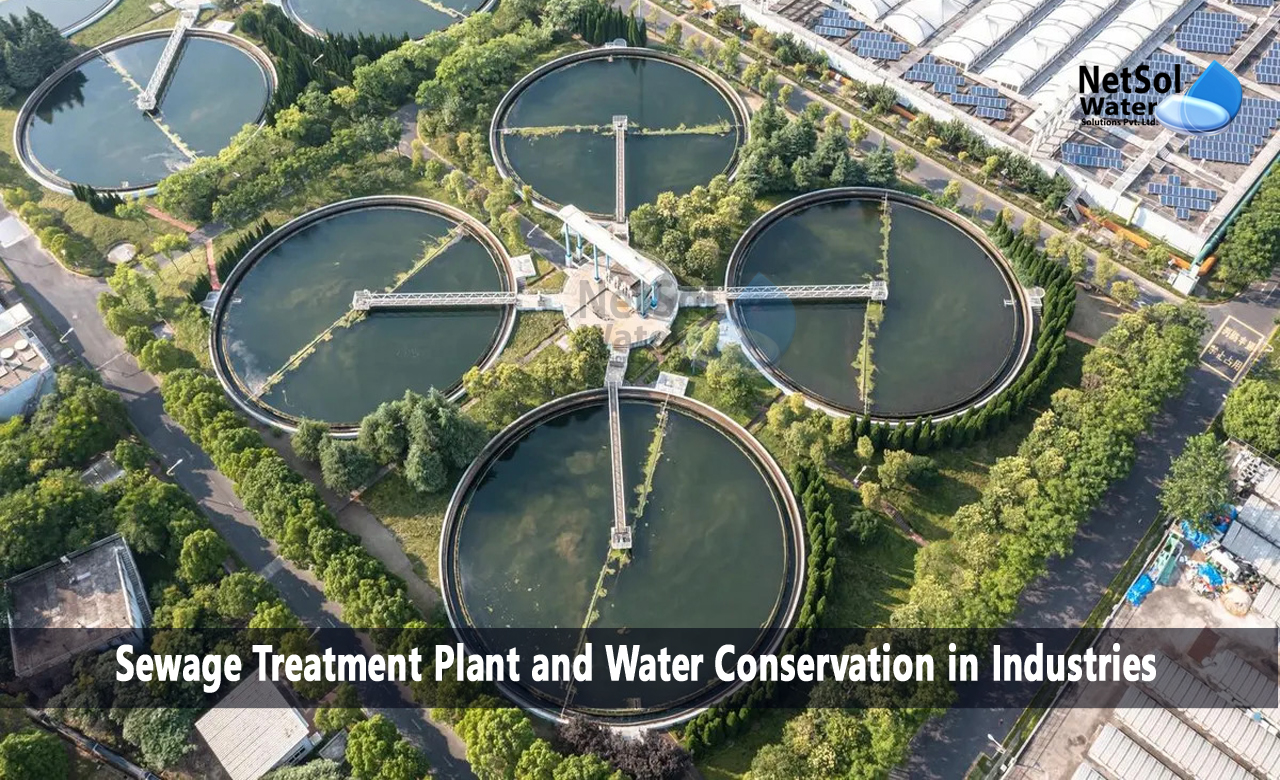Case Studies: STP Plant and Water Conservation in Industries
Water scarcity is a pressing global issue, and industries are significant contributors to water consumption and wastewater generation. Sewage treatment plants (STPs) play a crucial role in treating and recycling wastewater, but the importance of water conservation in industries cannot be overstated. By implementing best practices and adopting innovative solutions, industries can minimize water usage, reduce wastewater generation, and contribute to a more sustainable water future.
In this blog, we will explore the significance of water conservation in industries, highlight best practices, and present case studies that showcase successful implementation.
The Importance of Water Conservation in Industries
Industries consume large amounts of water for various processes, and wastewater generated often contains contaminants that require treatment before discharge. By prioritizing water conservation, industries can achieve several benefits:
- Resource preservation: Conserving water helps preserve this finite resource for future generations. By minimizing water consumption, industries contribute to sustainable water management and alleviate the strain on freshwater sources.
- Cost reduction: Water conservation initiatives can lead to significant cost savings for industries. By reducing water intake and wastewater treatment requirements, operational expenses related to water usage can be minimized, resulting in improved financial performance.
- Environmental sustainability: Water conservation in industries helps reduce the ecological impact on water bodies and ecosystems. By minimizing wastewater discharge, industries contribute to cleaner waterways and mitigate the potential for pollution-related environmental damage.
Best Practices for Water Conservation in Industries
- Water audits and monitoring: Conducting regular water audits helps identify areas of high water consumption and potential leaks. Monitoring water usage through metering and data analysis enables industries to track and manage their water consumption effectively.
- Process optimization: Optimizing industrial processes to minimize water usage is crucial for water conservation. This can include adopting closed-loop systems, implementing efficient equipment and technologies, and optimizing production methods to reduce water-intensive operations.
- Reuse and recycling: Implementing water reuse and recycling systems can significantly reduce water intake and wastewater discharge. Treating and reusing process water for non-potable purposes or integrating it back into production processes can greatly reduce freshwater demand.
- Rainwater harvesting: Industries can harvest rainwater for non-potable applications, such as cooling systems or landscape irrigation. Capturing and utilizing rainwater reduces reliance on freshwater sources and decreases overall water consumption.
- Employee awareness and engagement: Creating awareness among employees about the importance of water conservation and encouraging their active participation can lead to significant water-saving measures. Employees can contribute by reporting leaks, suggesting efficiency improvements, and practicing responsible water use in their daily activities.
Case Studies: Successful Implementation of Water Conservation Practices
- Coca-Cola India: Coca-Cola India implemented water conservation initiatives across its manufacturing units, focusing on reducing water consumption and replenishing water in communities. By implementing rainwater harvesting, wastewater treatment and reuse, and process optimization, Coca-Cola India achieved a water replenishment ratio of 1.55:1, meaning they replenished 155% of the water used in their operations.
- General Motors: General Motors implemented a comprehensive water conservation program across its global manufacturing facilities. This included initiatives such as process optimization, water leak detection programs, and water reuse systems. As a result, General Motors reduced its global water intensity by 35% between 2010 and 2018.
- Procter & Gamble: Procter & Gamble focused on reducing water usage in its manufacturing processes by implementing various water conservation practices. This included optimizing production processes, implementing water reuse systems, and setting water reduction targets. As a result, Procter & Gamble achieved a 27% reduction in water usage per unit of production between 2010 and 2020.
Conclusion
Water conservation in industries is crucial for sustainable water management and environmental stewardship. By adopting best practices such as water audits, process optimization, reuse and recycling, rainwater harvesting, and employee engagement, industries can significantly reduce water consumption and wastewater generation. The case studies of Coca-Cola India, General Motors, and Procter & Gamble demonstrate successful implementation of water conservation practices, resulting in substantial water savings and environmental benefits. Through collective efforts, industries can play a vital role in conserving water resources, mitigating water scarcity, and building a more sustainable future for all.
Netsol Water is Greater Noida-based leading water & wastewater treatment plant manufacturer. We are industry's most demanding company based on client review and work quality. We are known as best commercial RO plant manufacturers, industrial RO plant manufacturer, sewage treatment plant manufacturer, Water Softener Plant Manufacturers and effluent treatment plant manufacturers. Apart from this 24x7 customer support is our USP. Call on +91-9650608473, or write us at enquiry@netsolwater.com for any support, inquiry or product-purchase related query.



